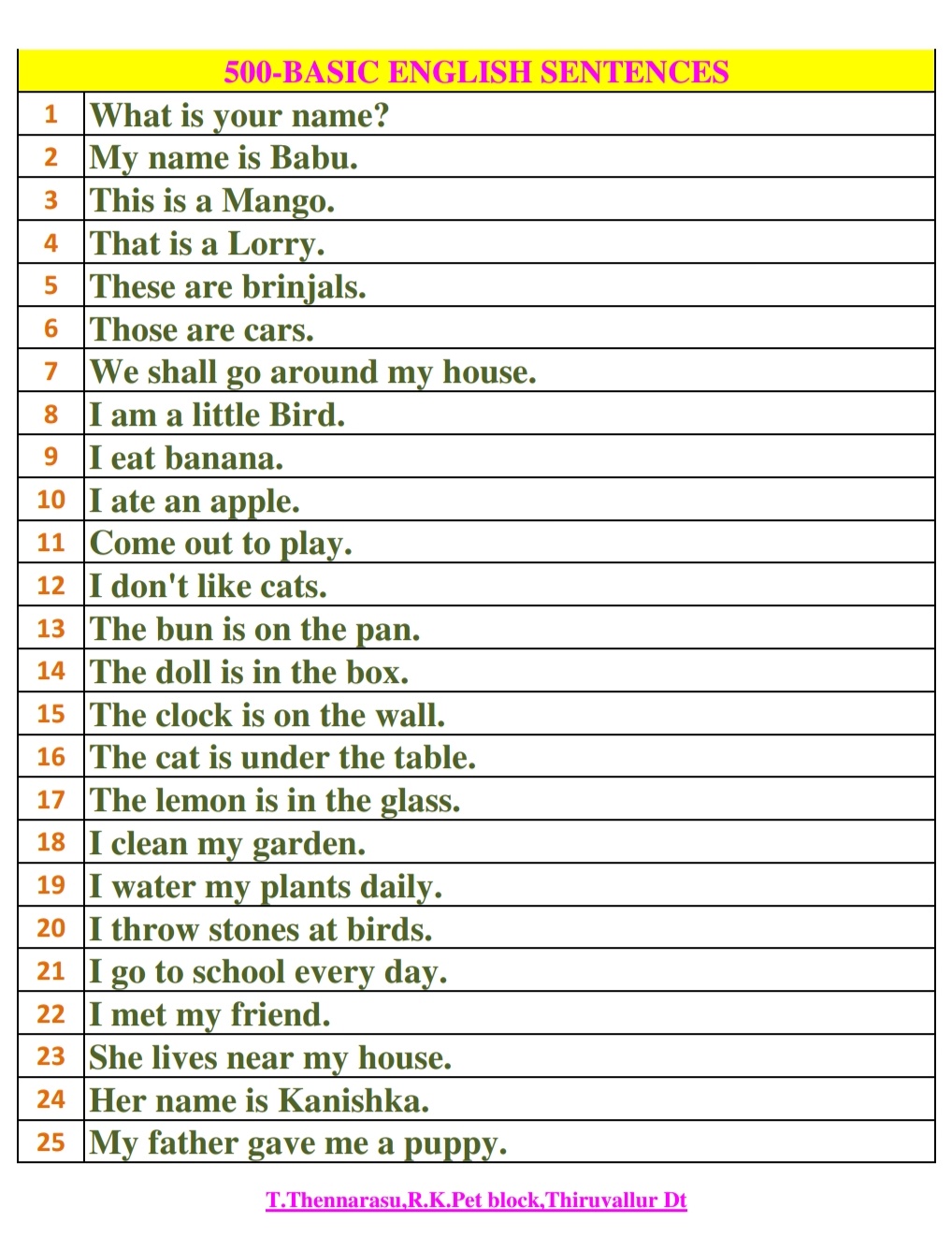
500 Simple English Sentences For Teachers & Students To Use In Classrooms
Examples of Simple English Sentences. Introducing Yourself to Someone You Meet for the First Time. Saying Hello - Beginning a Conversation / Making Small Talk. Asking Where Something/Someone Is. Requesting a Service or Help with Something. Inquiring about Something/Someone. Offering Help.

Daily Use Sentences in Classroom with Urdu Translation in 2020 Sentences, Basic english
Saying goodbye. "See you later/tomorrow.". This is an informal but polite way of saying goodbye to someone. "Bye-bye!". "It was great catching up with you, take care!". "Good night.". If you are leaving in the evening or late afternoon, you can say "good night" as a way of saying goodbye. "Have a nice weekend.".

Daily Use Sentences in Classroom with Urdu Translation English vocabulary words learning
Daily use English Sentences for Students Are you ready to go? Everybody makes a straight line. Well done, my boy! You're doing very well! Can I come to your office? Please note down tomorrow's homework. Lunchtime! Come on, everybody, to the canteen. Please pack your items properly. Have you had good lessons? Let the contestants stand out. Good job!
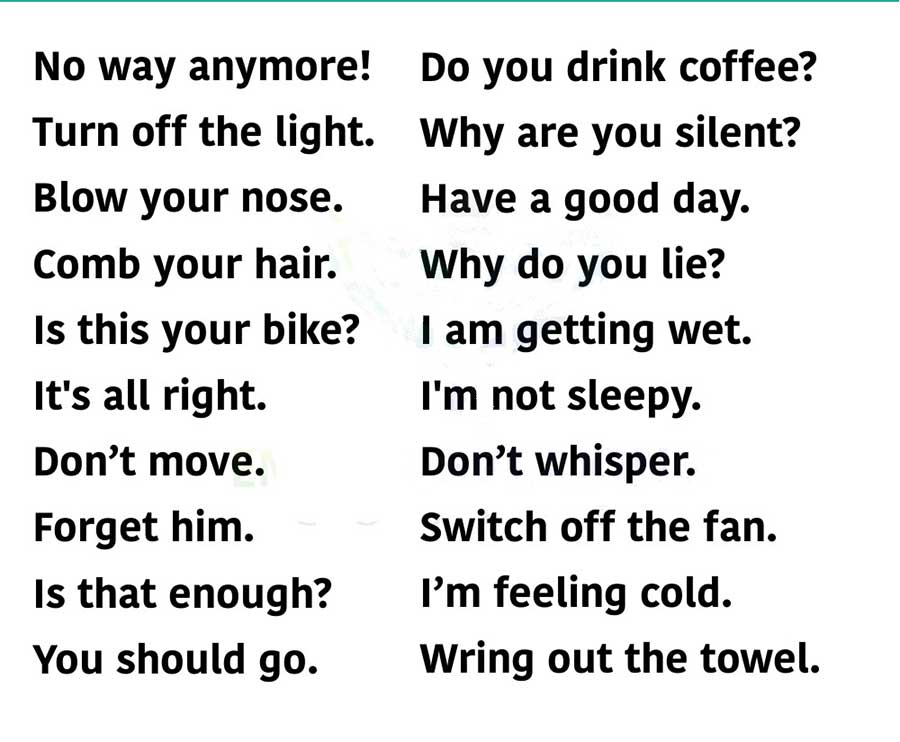
Basic Spoken English Sentences WBL Students' Blog
Simple Sentences in English: 50 Examples Shayna Oliveira Grammar What is a Simple Sentence? A simple sentence contains one independent clause. What's an "independent clause"? It's one subject followed by one verb or verb phrase . It expresses a single idea. Learn more about simple, compound, complex, and compound-complex sentences.
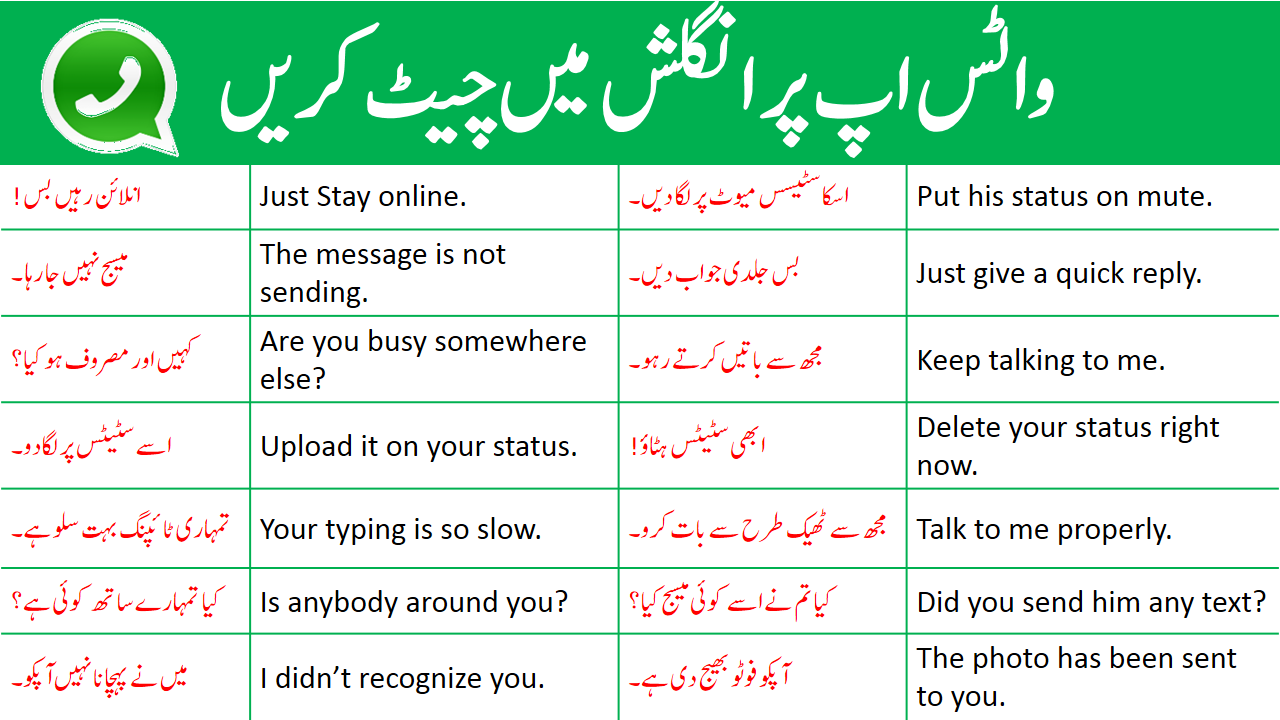
100 English Sentences used in daily life with Urdu PDF iLmrary
SENTENCES IN ENGLISH - This video contains 3000 English sentences split up into 32 different topics that you can use in your daily English conversations. Use.

Daily Use English Sentences with Urdu translation PDF Download Basic English Sentences, English
A simple sentence contains a subject and a verb, and it may also have an object and modifiers. However, it contains only one independent clause. Key: Yellow, bold = subject; green underline = verb, blue, italics = object, pink, regular font =prepositional phrase. Here are a few examples: She wrote.

Can you complete the sentence? EnglishQuiz English Palaber English Center, English Quiz, Esol
150+ Daily Use English Sentences for Everyday Life, Students, Teachers, Children, and More English Learning 101 · Follow 3 min read · Aug 30, 2023 Daily use English sentences Explore a.
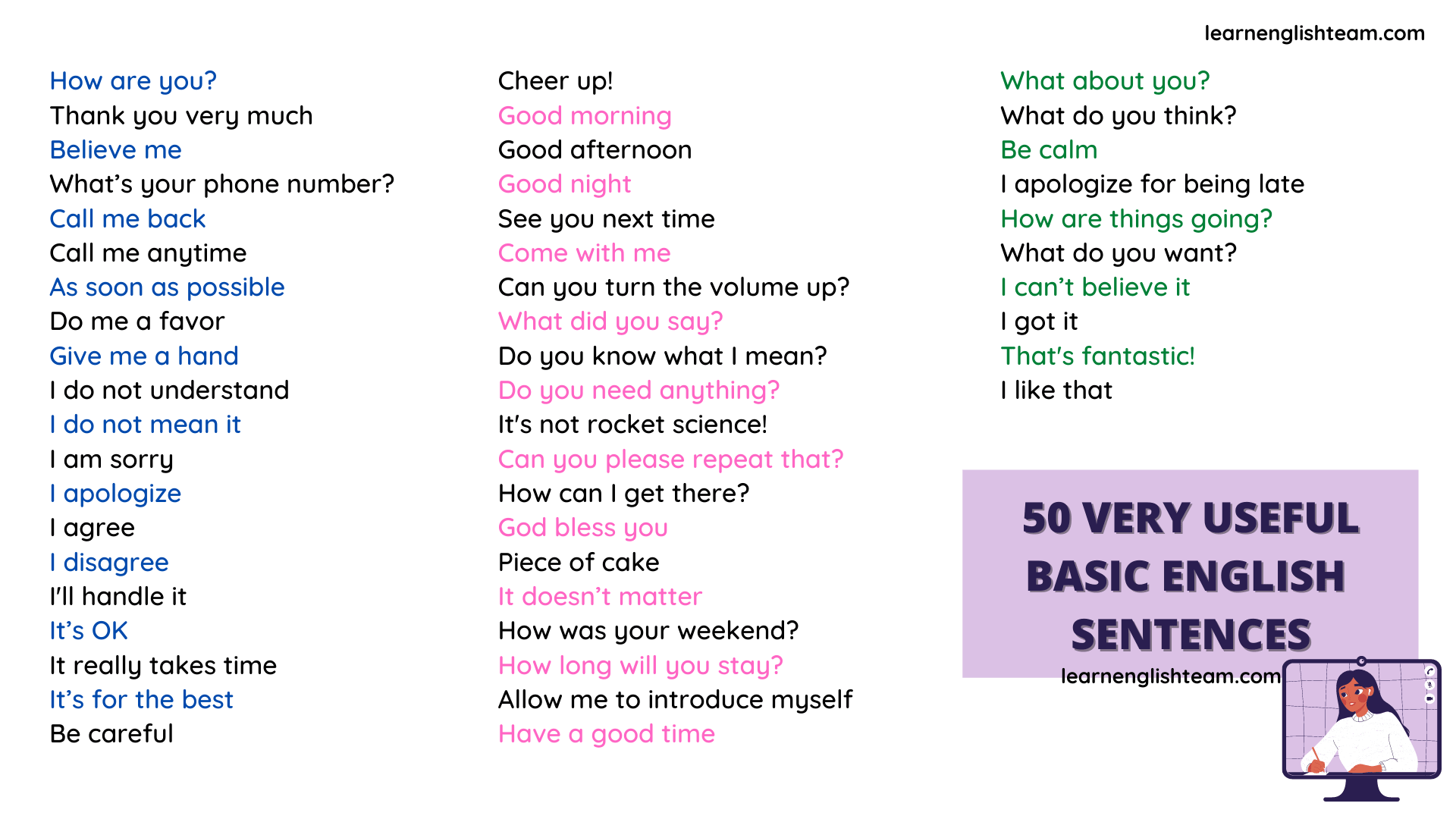
Very Useful Basic English Sentences For Beginners (PDF)
English Phrases for Introducing Yourself and Making Friends 1. Hi! I am [Name]. (And you?) 2. Nice to meet you. 3. Where are you from? 4. What do you do? 5. What do you like to do (in your free time)? 6. What is your phone number? 7. Do you have Facebook? Everyday English Phrases for Any Conversation 8. Thanks so much. 9. I really appreciate… 10.

Pin on English Sentences in Urdu for Daily Use
Some sentences have more than one subject-predicate combination, but the subject position always comes first. No matter how many subject-predicate pairs come in a sentence, the ratio is always 1:1—every subject needs a predicate, and every predicate needs a subject. Subject-predicate examples. Ducks fly. Haggard and elderly ducks and geese.

500 Daily Use English Sentences in Urdu Translation with PDF • Engrary English Phrases, Learn
May 24, 2023 Hello, students! Today, in this lesson, we have brought to you daily-use English sentences that can be incorporated into your daily life routine, whether at home or school. These English sentences will enhance your spoken English skills. If you are at the beginner level, these sentences will surely be helpful to you." Table of Contents

Students complete the sentences with the most appropriate verb. Vocabulary Actions English
Sentence 100 Simple English Sentences for Kids May 25, 2023 Are you looking for simple English sentences for kids? Here we have a huge collection of simple sentences for kids. Simple Sentences for Kids There is no way to go outside. Where is the duster? How dare you say that! Wash your hands. Whose kid is this? What is going on?

150+ Common English Sentences Used in Daily Life EngDic
A sentence is created by combining a set of words to make a complete, grammatically correct communication. Learn these basic English sentence structures, and you will be learning a valuable lesson —no matter your level of English. Contents How to Understand Any English Sentence How to Make Your Own English Sentences

Classroom English Classroom Phrases English Learning Spoken, English Language Learning
Student (US) / or pupil (UK): When you study in a school, you're a student or a pupil of that particular school. Classmates : The other students who study with you are your classmates. Together, all of you form a class. Classroom : The room—with desks, chairs and a blackboard—where you sit and receive the lesson.
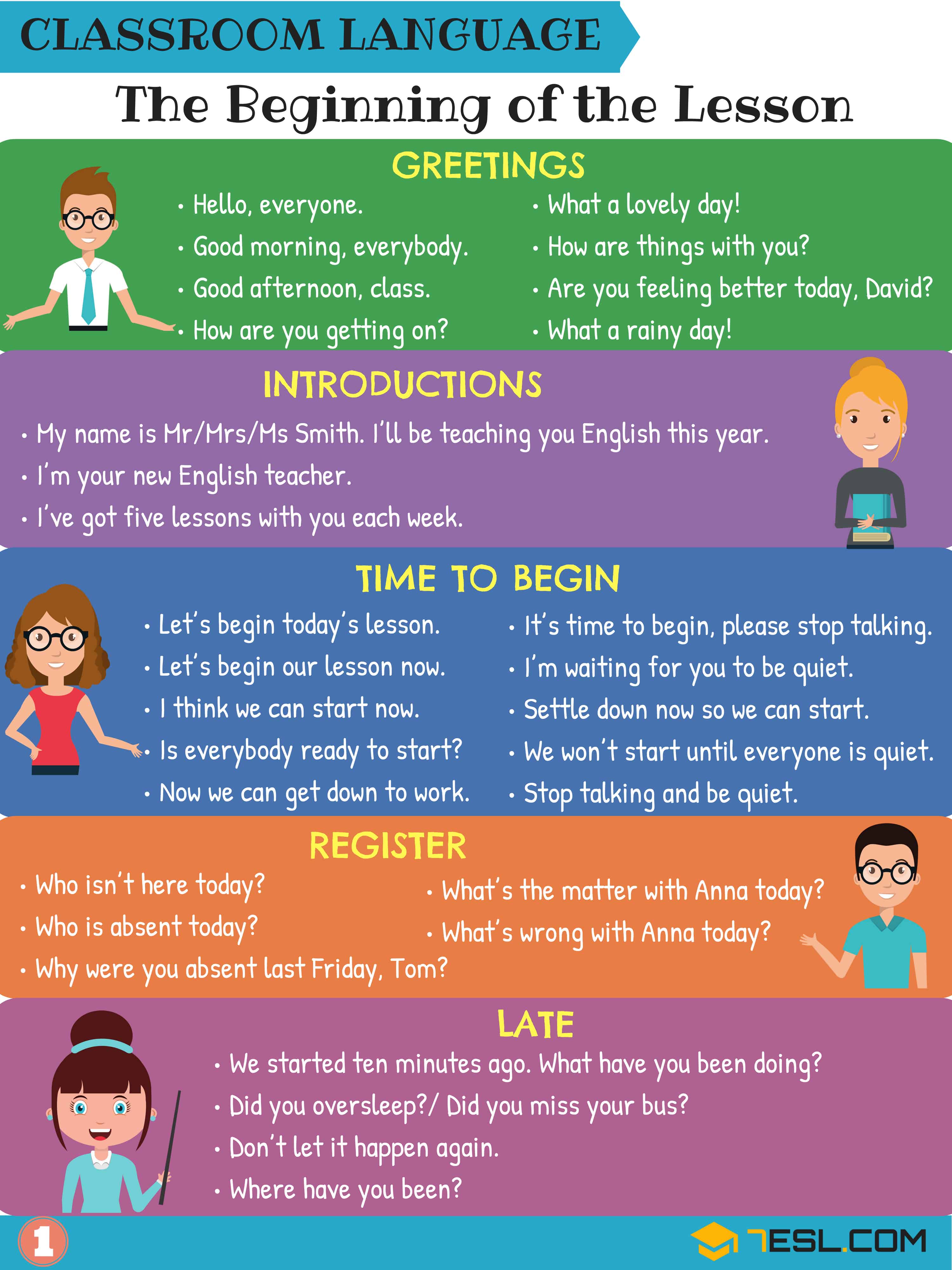
Simple Sentence Make Sentences In English For Class 1 Várias Classes
The goal of this post is to teach basic daily English phrases, sentences with beginner level English learners. With some proper practice you will learn them easily. Don't hesitate to use them in your conversations. At the end of this lesson, you can find 500+ English Sentences, Phrases free PDF e-book. The sentences selected for this lesson.

Can you complete the sentence? EnglishQuiz English Palaber English quiz, English center, Esol
English Sentences with Audio. Bilingual Sentence Pairs. English Sentences Focusing on Words and Their Word Families. English Sentences with Audio from the Tatoeba Project with Translations. English Sentences with Audio, Sorted by Syllable Count.

Basic English Grammar Book, Basic English Sentences, English Phrases, Learn English Words
Subject and Verb Agreement. Objectives: The students will be able to correctly use verbs in a sentence so that the verbs agree with the subjects used. Presentation: - Make sure the students understand that the subject of the sentence must agree with the verb.A singular subject takes a singular verb and a plural subject takes a plural noun. - Make sure to note that in third person singular.